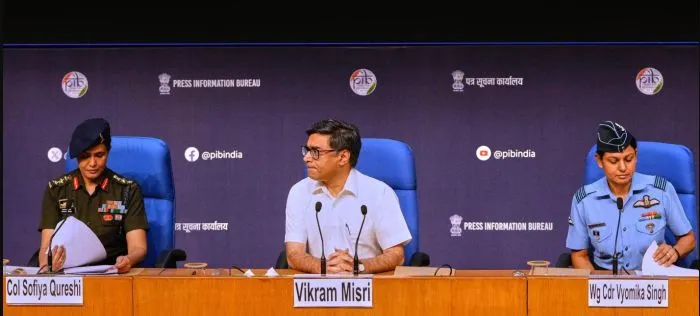
Operation Sindoor marks a new chapter in India’s strategic response to cross-border terrorism. In a bold and covert military maneuver, India launched Operation Sindoor to dismantle major terror camps operating inside Pakistan-occupied territories. The operation signals India’s unwavering commitment to national security and its zero-tolerance stance on terrorism.
Operation Sindoor: India's Strong Reply to Terrorism
Operation Sindoor is the name for India's powerful and precise actions taken against terrorism coming from Pakistan. It was a significant step for India, demonstrating its seriousness about halting attacks.
Why Did India Launch Operation Sindoor?
India has suffered many terror attacks that originated from Pakistan, like the big ones in Mumbai (2008), Pathankot (2016), and Pulwama (2019). Even though India tried talking and sharing evidence, Pakistan kept letting terror groups operate.
The final straw was a terrible terror attack on April 22, 2025, in Pahalgam, where 26 innocent people, mostly tourists, were killed. This attack made it clear that India needed to act more decisively. India's Defence Minister, Rajnath Singh, said that Operation Sindoor wasn't just a military move, but a clear message that India's patience with cross-border terrorism had run out.
What Happened During Operation Sindoor?
Operation Sindoor took place on the night of May 6th and 7th, 2025. It was a highly advanced and complex military operation, the most extensive India has undertaken since the 1971 war.
Indian forces used modern tools like kamikaze drones, very accurate precision-strike missiles, and supersonic cruise missiles. They targeted nine known terrorist bases deep inside Pakistan and Pakistan-occupied Kashmir (PoK). These targets included the main offices of well-known terror groups like Lashkar-e-Taiba, Jaish-e-Mohammad, and Hizbul Mujahideen, which have been responsible for many attacks.
India's Measured but Firm Approach:
What made Operation Sindoor unique was how carefully India handled it. India initially said its attacks were not meant to escalate the situation and only aimed at terror bases. However, when Pakistan retaliated with its own drone and missile strikes, India showed it could increase its actions if needed. Defence Minister Singh even said, "Operation Sindoor is not over yet... this is just a pause," meaning India is ready to continue if necessary.
More Than Just Military Action:
Besides military strikes, Operation Sindoor also involved other important steps. India used diplomatic and economic pressure, even suspending the Indus Waters Treaty, which regulates the sharing of river water sharing with Pakistan. This move, connecting water issues to terrorism, showed India's clear strategy to make Pakistan pay a price for supporting terrorism.
A New Chapter in Counter-Terrorism:
Operation Sindoor signals a "new normal" for India's fight against terrorism. It sends a strong message: India will not be a victim of terrorism. It will respond with strength, accuracy, and a strong commitment to its own safety. This bold approach aims to break down the network of terror that has troubled the region and create a more stable and safe South Asia.







